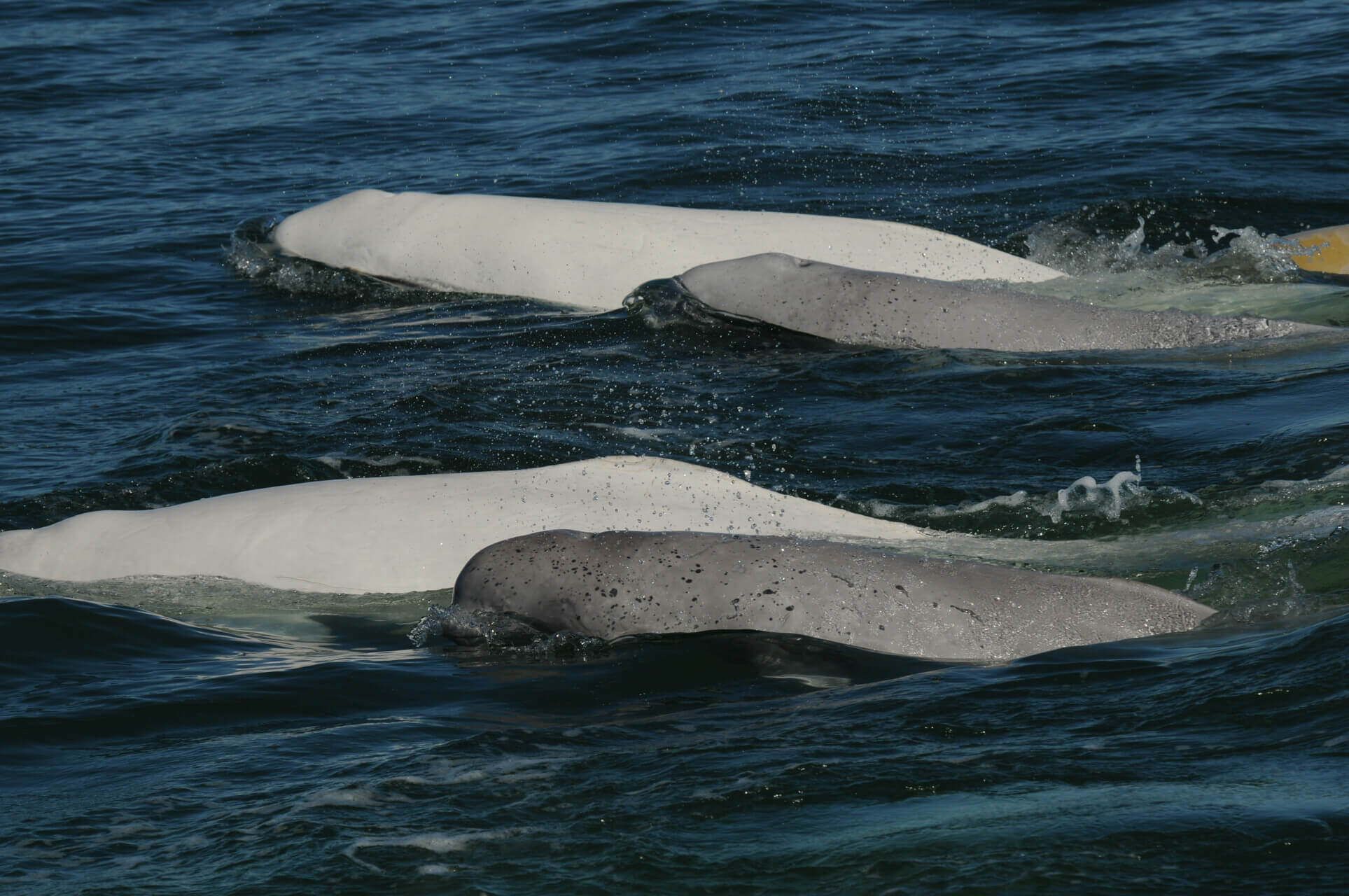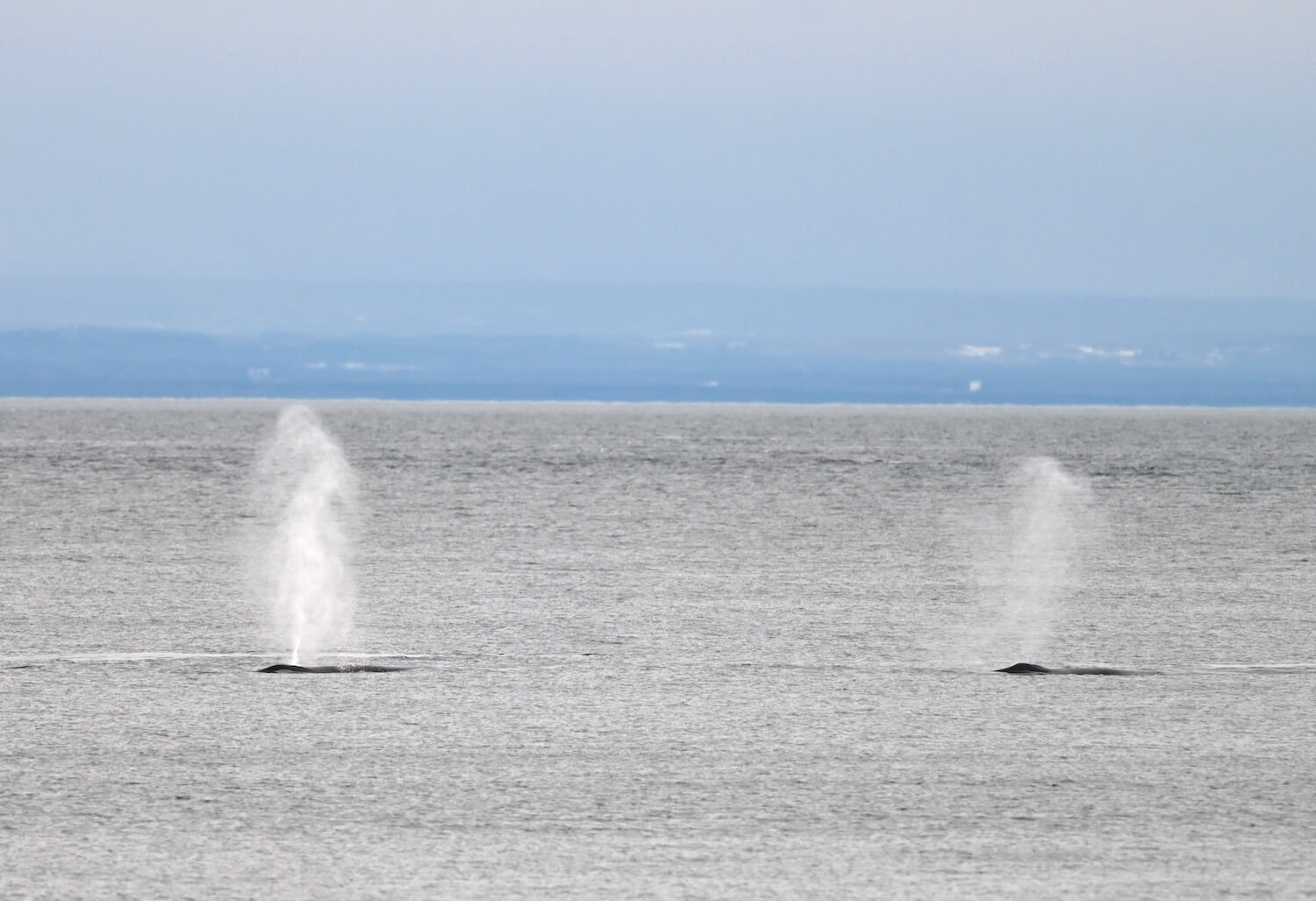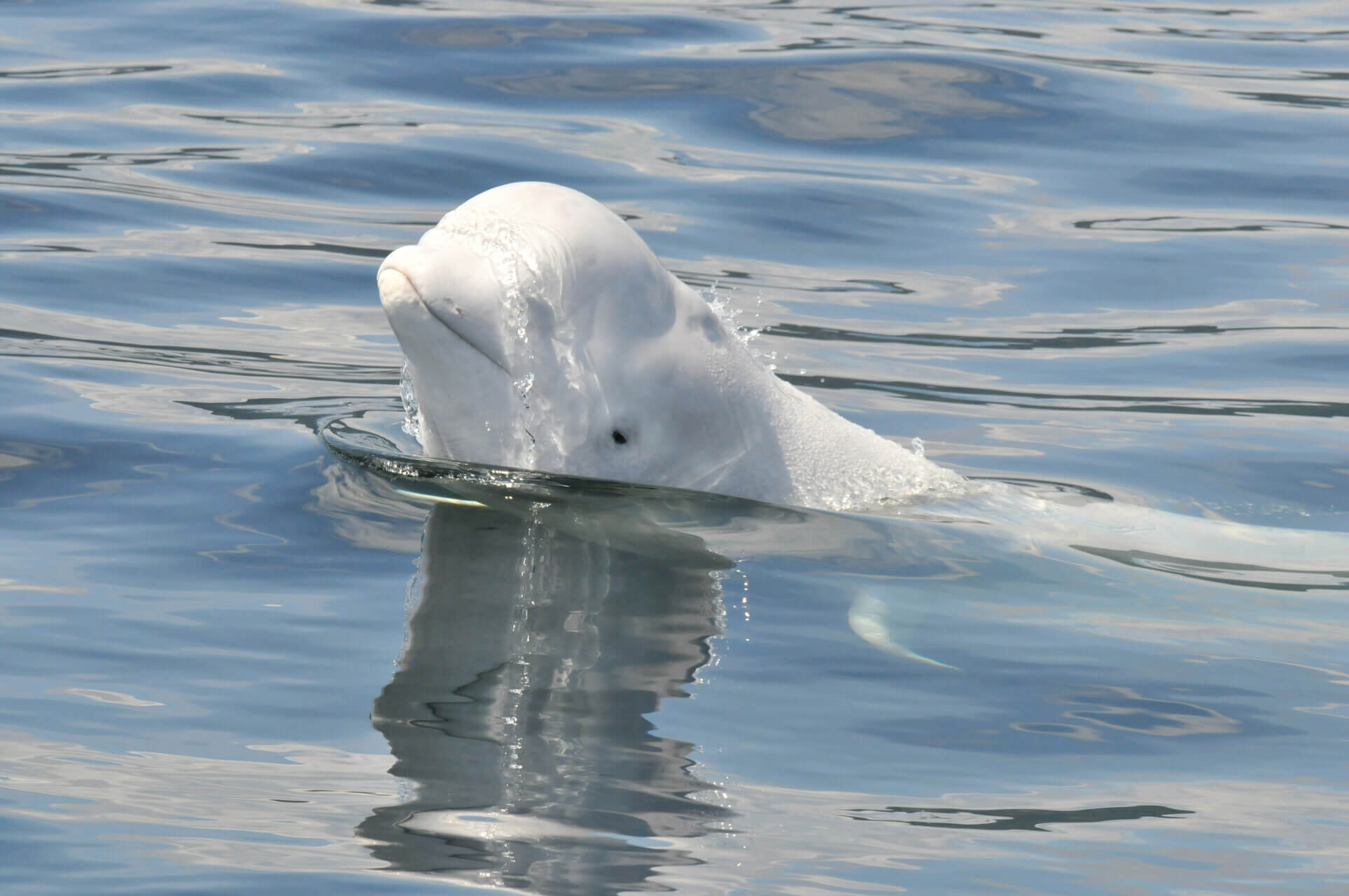The Whales Online team asked these questions to researchers who dedicate their time and energy studying the whales of the St. Lawrence. A summary of their responses follows.
Like all living beings, whales occupy a role in the food chain and thus contribute to the balance of the marine ecosystem. As predators, they feed on fish and invertebrates; as prey, they may be hunted by other predators (sharks, whales, etc.) and by Man. When they die, their carcasses sink and serve as food to a host of scavenger organisms who decompose them into nutrients available for other organisms, explains Véronique Lesage of Fisheries and Oceans Canada. Whales act like a pump that recirculates the fish and zooplankton that they’ve ingested toward the surface in the form of nitrogen-rich fecal matter. These nutrients are essential to the primary production of the marine ecosystem.
Whales are sentinels of the health of marine environments. They are found in all the world’s oceans, from coastal areas to the deep sea. As whales lie at the top of the food pyramid, any decline or increase in their population is an indication of a change in their habitat. Dany Zbinden of the organization Mériscope stresses the importance of protecting whales, as doing so will not only ensure the recovery of their own populations, but also the survival of other species in the marine ecosystem. Studying whales has led to numerous discoveries. To this day they serve as an inspiration in the development of new technologies such as watercraft sonar and wind turbine blades.
Moira Brown of the New England Aquarium also points out the commercial importance of whales. Whether through population census programs for recovery plans or observation activities catered to tourists, whales contribute to local economies thanks to people’s growing interest in them around the globe. Human activities such as chemical and noise pollution, entanglement in fishing gear and ship strikes have greatly affected whale populations. Canada has the longest coastline in the world. Bordered by three oceans, the marine ecosystem is part of the country’s heritage. If humans threaten these populations by breaking the balance of the cycle, they must protect them in order that future generations can observe them and be inspired by them.
Special thanks to Véronique Lesage (Fisheries and Oceans Canada), Dany Zbinden (Mériscope) and Moira Brown (New England Aquarium) for their replies.
To learn more:
Nutrient pumping system in whales: The Whale Pump





